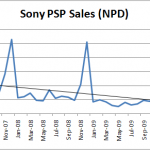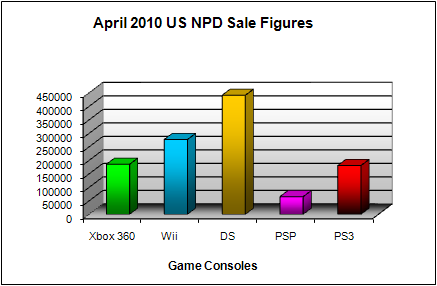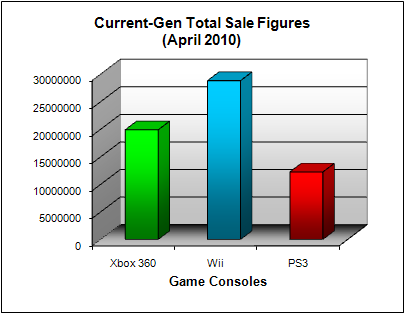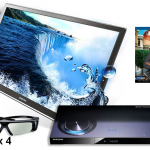Welcome to another edition of the WNR. Didn’t post a blog or article during the week, you can’t seriously expect me, lazy as I am, to do it two weeks in a row, can you? In terms of news, it was relatively light as well. Just an update on my purchase of the Samsung 3D plasma TV – still no news of when it will be in stock, although I haven’t really asked. I probably should/will do so early next week, but there’s a definite stock shortage due to the World Cup or manufacturing problems, depending on who you talk to. I wouldn’t say that it’s the huge demand for 3D that’s causing stock shortages, but I think it’s more the price drops on the new 2010 models (compared to 2009 ones) that are making these TVs quite popular – when you can get a 63″ plus everything you and your family needs to watch 3D movies (4 pairs of glasses + 3D Blu-ray player, and even a 3D Blu-ray movie that’s not available to buy elsewhere) for lower than the price of last year’s 3D-less 58″ model, then demand will surely go up, plus with the World Cup around the corner, everyone wants a brand new big screen TV to watch it on (and being able to enjoy the 3D broadcast of the games is just a bonus). It’s just a shame that Samsung hadn’t anticipated this demand. Anyway, onto the news.

Starting with copyright news, more bad news in court for BitTorrent indexer isoHunt as a judge ordered permanent injunctions against isoHunt, and gave music labels and movie studios various ways to stop isoHunt from providing torrents of copyrighted content.
One of which is that isoHunt must ensure they do not list any content based on lists provided by music/movie studios, and that the isoHunt search engine must be crippled when it comes to searching for words associated with piracy, such as “warez” or “cam”. This will make running isoHunt in its current form very difficult indeed, and it appears the judge was not pleased at recent efforts by isoHunt to show that it is really just a search engine, much like Google. The isoHunt Lite interface, which mimics the simplicity of search engines such as Google or Bing, and removes a lot of the functions normally associated with BitTorrent index websites (such as well defined categories for things like “TV shows” or “Movies” or “DVDR Rips”), and tries to paint a picture of isoHunt as a search engine, much like Google, and not a “provider” or host of pirated content. But the judge didn’t buy this argument, saying isoHunt still allows torrents for pirated content to be located, and that’s enough to grant the permanent injunction and force the limitations on torrent listing and searching. So what’s next for isoHunt? Nobody knows. The website is actually hosted in Canada, one of the axis of evil countries in the eyes of the copyright groups, but the owner is located in the US, and so they have to comply.
Moving over to the Britain. Details of how the UK three-strikes system would work has finally emerged, after information released by regulators Ofcom. Apparently, there will be a big list of names and addresses of people that have been suspected of online piracy, and music and movie studios will have free access to this constantly updated list. Every time someone is caught potentially downloading pirated content, their name will be added to the list or the list amended to include the latest offence, and the offender will also be sent a letter warning them of their actions. The copyright holders cannot take legal action against the offender until three letters have been sent out (therefore, three-strikes). There will be an independent appeals process, although information on how it will work is still sketchy. The letters will address the issue of hacked connections, but it seems that if your connection has been used without your permission, that still counts as a strike. Two things may happen. One, the list will grow large rather quickly and Royal Mail will be kept busy. Or two, people will get their pirated content from places that Ofcom and others cannot monitor, and so the stats will show less piracy, with no real world effects. I know know, but it seems copyright holders may very well be content with the latter of these outcomes, since I guess a false sense of security is better than none, especially if you know there’s not much you can do to stop piracy anyway (other than, you know, innovate and stuff).
Movie studios may complain about other stealing their stuff, but are they also stealing other people’s stuff? A company has sued Warner Bros. for allegedly stealing their anti-piracy technology, relating to watermarking films. So has Warner Bros. pirated anti-piracy technology? I wonder if they can blame it on their hacked Wi-Fi connection …
And wading into the gaming DRM debate, Blizzard co-founder Frank Pearce say that game developers are wasting their time on adding DRM to games, time they should spend on improving the games, the gaming community and other innovations (there’s that ‘I’ word again). Pearce say that there’s no foolproof DRM system, and that it is such a tempting target for hackers and crackers, that even most complicated system (are you reading this Ubisoft) will be cracked eventually. Instead, game developers should try to add value to game purchases, and to promote gaming communities where gamers will want to have the legitimate version so they can be part of this community. Blizzard’s own eagerly awaited Starcraft II won’t use an Ubisoft like “always on” DRM system, but it has removed LAN multiplayer, which some say is an attempt to force people to use Blizzard’s Battle.net system, which would then ensure the players all have legitimate versions of the game. I don’t think there’s anything wrong with this approach, as long as offline play is still possible for the single player campaign. There’s little sympathy for those that still want multiplayer with pirated versions of the game. There has been quite a few developers that have come out against DRM, so the movement is growing, but most of them are developers that are quite confident in their products and the “value added” content that’s only available to legitimate buyers. But I think the last few years have proved that people are willing to put up with a little bit of online based DRM if they see value in connecting online, such as on the Steam platform, Xbox Live or Battle.net. And in the end, this solution is more long lasting than any DRM that companies like Ubisoft can come up with.

Onto HD news now. Corel’s WinDVD is the latest PC based Blu-ray playback solution to get 3D Blu-ray certification. Corel have promised that a free patch will be available for WinDVD Pro 2010 users to add 3D Blu-ray support later in the year, the same deal that Cyberlink announced earlier with PowerDVD.
NVIDIA has also announced that 3D Blu-ray support, in the form of GPU based decoding, will be available via a driver update for a most of their recent GPUs. 3D Blu-ray movies carry more data than traditional 2D movies, and so will require more processing power – with GPU assist, this reduces the need to rely on the CPU. Expect ATi/AMD to make a similar announcement soon.
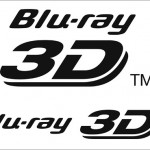
Only Blu-ray movies carrying the 3D Blu-ray logo are certified, and there's only a couple available, and none for standalone purchase
I think one of the best developments recently has been the certification of the 3D Blu-ray standard. Without it, every manufacturer would have used their own system, and there would have been no way to guarantee that a Blu-ray marked “3D” would play on all 3D Blu-ray players connected to 3D TVs. But luckily, we get a standard that includes a wide range of technologies, and so it seems all the bases are covered when 3D Blu-ray movies become available for general purchase. Unfortunately, there’s no definite 3D broadcasting standard, and there’s no standard for the 3D glasses that TVs use, with each manufacturer using their own systems for now. Speaking of 3D Blu-ray movies, there still isn’t a certified 3D Blu-ray movie that you can buy at the shops, except as part of Samsung’s 3D Starter Kit (which includes the certified 3D Blu-ray movie, Monsters vs Aliens). The glasses as part of the kit will only work with the new Samsung 3D TVs, but the included movie should work on any 3D Blu-ray player connected to any 3D TV, thanks to the 3D Blu-ray standard. The 3D kit comes free with Samsung 3D TVs in selected countries, including the US and Australia. Most of the other 3D Blu-ray movies are only available exclusively to other manufacturers, and you can’t even buy them even as part of a pack – for example, Panasonic is bundling the 3D Blu-ray version of Ice Age 3 and Coraline with their 3D TVs. Note that there is a “3D” version of Coraline available on Blu-ray, but it isn’t 3D Blu-ray certified – it only includes the anaglyph version of the movie, the one that requires those old red/blue glasses. The 3D Blu-ray certified version is the only one that will work with the modern 3D systems, mostly based on shutter glasses technology.

Both say they have a 3D version of the film, but only the one on the right has the Blu-ray 3D certification
There’s still some debate as to whether plasma or LED/LCD is better for 3D. Early evidence suggest that plasma is, because pixel response times are much lower than LED/LCD, and if the response time is too high, then you’ll get what’s called the ghosting effect. There’s certainly not enough 3D TVs out on the market to make any firm conclusions though.
But one display technology that won’t do 3D, or anything else for that matter, is SED. SED, which stands for Surface-conduction Electron-emitter Display, was being developed by Canon as being the next big thing in TV, with blacks as black as the old cathode ray tube sets, but with the thickness of modern LCD TVs. But after lawsuits, patent claims and high production costs, Canon has decided to drop development of SED TVs. So that pretty much leaves OLED as the sole successor to LED/LCD and plasma TVs, which is not a bad thing, because if all research is dedicated to this technology, then we might see something available for purchase soon (that’s reasonably priced, more so than that Sony OLED TV anyway).
And straddling the line between HD and gaming news is Sony’s announcement of a partnership with HBO to stream shows to the PS3, at a cost of $2 to $3 per episode. If you think the price is high, then the worst is yet to come, as shows will be delayed 11 month from when they first premier on cable to when they are available on the PS3, making all of this rather pointless to be honest. But HBO must also straddle the line between distributing their shows on new platforms, and not offending current partners such as the cable operators. The Internet is changing things much more widely and quickly than anybody has anticipated, and if fast (as in 100 Mbps or faster), cheap Internet is available to everyone tomorrow, a lot of today’s established business models would seem rather outdated, including that of non interactive cable TV. Cable operators not investing in IPTV, on demand technology will find themselves in a very bad position in the near future.
And that’s all we have for this week. I can’t promise more next week, especially if I get delivery of my new Samsung 3D TV, which means I’ll be spending most of the time playing with it. If you see me post a mid-week blog or a new guide, then you’ll know I’ve received bad news about the availability of the TV. Have a good one.





